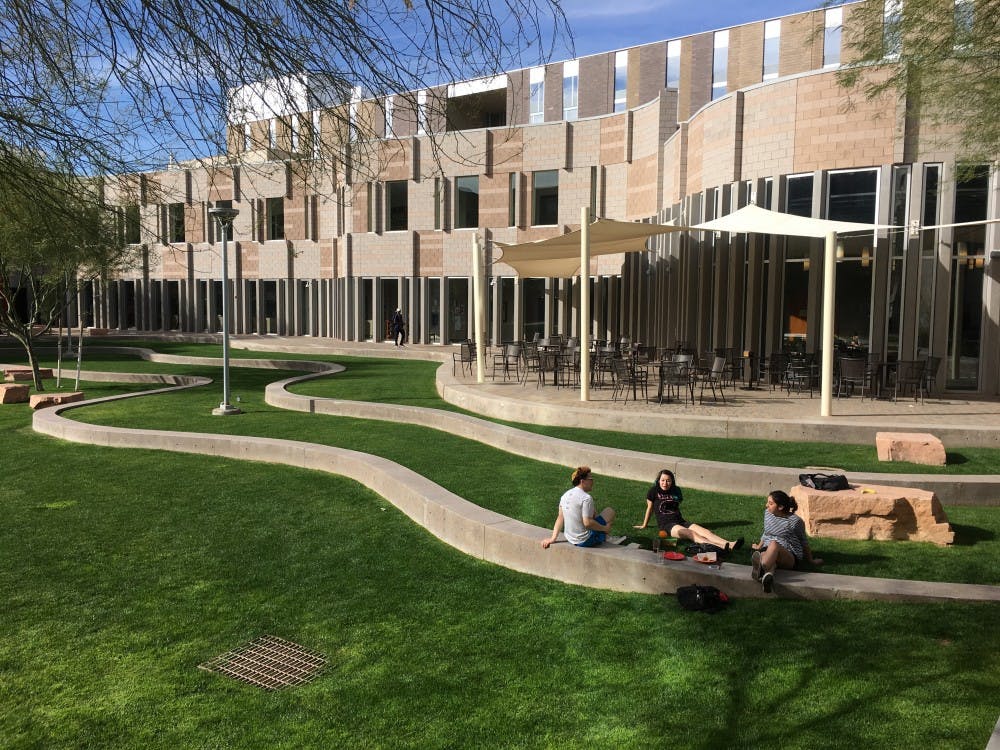In order to graduate with honors, Barrett students must accrue at least 36 honors credits. These can be obtained through several classes, internships or capstone projects, but one notable way to gain credit is to enroll in special topic seminars, which offer a laid back, unique approach to honors education.
Honors topic seminars (HON 394) are one credit courses taught by the same faculty members who teach The Human Event, which is the signature class that all Barrett freshman must take.
While Human Event classes are molded around a basic curriculum provided by The Honors College, the professors for HON 394 classes choose a topic themselves — any topic — and collaborate with the honors administration to create a workable course.
This results in students being able to enroll in unique classes that touch on 40 different subjects, such as Anthropology of Cooking and Food Preparation, Fairytales and Their Modern Retellings and Myth and Mysteries of the Tarot. There are also courses that focus on race theory, gender discrimination, science and physics.
Honors topic seminars are considered upper division electives and are open to all Barrett students who have at least 30 ASU credit hours under their belt.
Alexander Hampton, Ph.D, teaches an HON 394 on Re-Enchanting Nature: Sprituality & New Nature Lit, which focuses on works from the last decade that deal with humanity's relationship to the environment. Hampton said one of the main virtues of his course is that all the authors they study are living, so the students can actually Skype with them and discuss the works they read in class.
He also said his class is one of the only ones dealing with the particular subject in North America.
"We are explorers, or pioneers, in this emergent field," Hampton said. "I think that gives students a sense of being part of something that is more than just an elective. We are actually doing that thing that we always talk about doing in universities, being on the boundaries and the forefronts of knowledge."
Professors describe the workload in HON 394 as much less strenuous than the Human Event, focusing mostly on class discussion and very few assigned essays. Instructors said they wanted to material to be challenging and rewarding, but accessible to students of any major.
According to faculty, some students even take their research on the topics they explore in these classes and turn it into the foundation for their thesis or creative project.
Aviva Dove-Viebahn, Ph.D, teaches an honors topic seminar called Media, Community and Identity Politics. She praised the HON 394 seminars for encouraging interdisciplinary collaboration, because they are open to students of all majors. She views them as a great way to expose students to new material.
"Honors topic seminars can be a really valuable way to encounter subject matter that you've never encountered before, or are now examining from a different perspective," Dove-Viebahn said.
Kyle Mox, Ph.D teaches a HON 394 on the Ethics of Hospitality in Literature and Philosophy and said he views the Honors topic seminars as a cornerstone of the Barrett experience, just as important as The Human Event. He recommends that students try and take an honors topic seminar at least once, if for no other reason than the unique educational experience.
"As someone who has been in the classroom but also on the administration side: take a special topics seminar. Because the instructors will be excited and inspired," Mox said. "It's a very special experience."
The honors topic seminars offered change each semester, but interested honors students can look out for the schedule of Fall 2017 classes to become available on Feb. 20, 2017.
Reach the reporter at cagoldin@asu.edu or follow @auruming on Twitter.
Like The State Press on Facebook and follow @statepress on Twitter.




